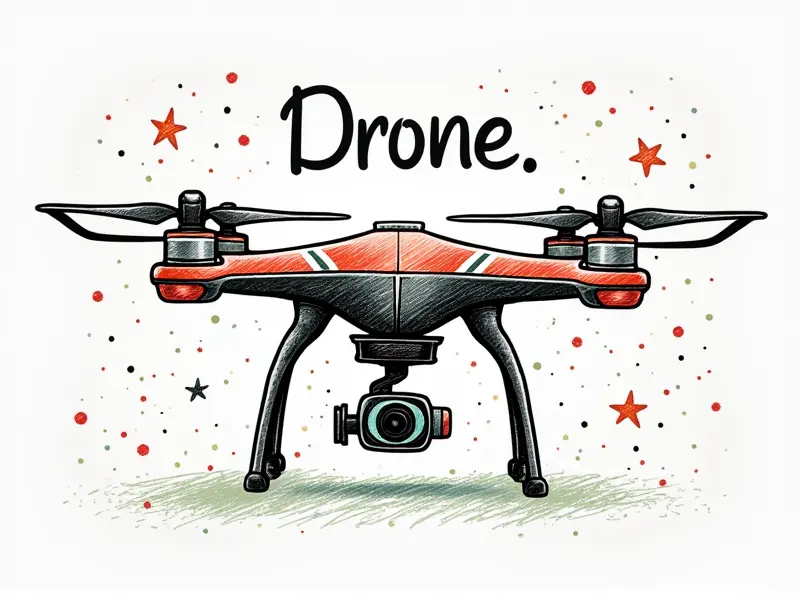Should I fly FPV at night?

Is Night FPV Really Fun?
Flying first-person view (FPV) drones at night can be an exhilarating experience for enthusiasts. The unique visual and sensory aspects of nighttime flying offer a fresh perspective on the hobby, making it appealing to those looking for new challenges.
The thrill of racing through dark landscapes illuminated only by your drone's lights can provide a sense of adventure that daytime flying cannot match. However, this excitement comes with its own set of risks and considerations.
Advantages of Night FPV Racing
- Unique Visual Experience: Flying at night allows pilots to see their drones from a different perspective, often revealing hidden details in the environment that are obscured by daylight.
- Reduced Air Traffic: Fewer people flying during nighttime hours means less competition and fewer obstacles for FPV enthusiasts.
- Enhanced Focus: The absence of daytime distractions can help pilots concentrate more on their flight paths, leading to improved skills.
Risks of Night FPV Drone Racing
- Safety Concerns: Flying at night increases the risk of collisions with obstacles that are not easily visible in low-light conditions.
- Legal Issues: Many areas have strict regulations regarding nighttime flying, and violating these rules can result in fines or legal action.
- Battery Life: Drones typically consume more power at night due to the need for additional lighting, which can shorten flight times significantly.
Benefits of Night FPV Experience
Flying FPV drones at night offers several benefits beyond just the thrill factor. The unique environment challenges pilots to adapt their skills and strategies, fostering growth in areas such as navigation and situational awareness.
- Improved Navigation Skills: Navigating through dark environments requires heightened spatial awareness and quick decision-making abilities.
- Enhanced Drone Customization: Pilots often need to modify their drones for nighttime flying, such as adding additional lighting or improving camera quality.
Challenges of Nighttime FPV Flying
Nighttime FPV flying presents numerous challenges that pilots must overcome. These include technical difficulties, environmental hazards, and personal limitations.
- Tech Challenges: Ensuring your drone is equipped with adequate lighting and camera adjustments for nighttime visibility is crucial.
- Hazardous Conditions: Nighttime flying increases the risk of encountering unexpected obstacles or terrain features that are not visible in daylight.
Should You Try Night FPV?
The decision to fly FPV at night depends on your personal preferences, skill level, and understanding of the associated risks. If you're prepared for the challenges and willing to adhere to safety guidelines, nighttime flying can be a rewarding experience.
Secrets of Night FPV Success
- Proper Lighting: Ensure your drone is equipped with sufficient lighting to illuminate its path clearly.
- Practice Daytime Flying: Gain proficiency in daytime flying before attempting nighttime operations.
- Follow Regulations: Familiarize yourself with local laws and regulations regarding nighttime drone operation.
Legalities of Night FPV Operations
Flying FPV drones at night is subject to various legal restrictions. It's essential to check local aviation authorities for specific guidelines, as penalties can be severe if you violate these rules.
- Airspace Regulations: Many regions have strict airspace regulations that prohibit nighttime flying in certain areas.
- No-Fly Zones: Be aware of no-fly zones and restricted areas, which may apply differently at night.
Enjoying FPV at Night: Pros & Cons
Flying FPV drones at night has its pros and cons. While the unique visual experience can be thrilling, it also comes with increased risks and challenges that must be carefully managed.
- Pros:
- Unique Visual Experience
- Reduced Air Traffic
- Enhanced Focus
- Cons:
- Safety Concerns
- Legal Issues
- Battery Life
Tips for Safe Night FPV Drone Flying
To ensure a safe and enjoyable nighttime flying experience, follow these tips:
- Use Adequate Lighting: Equip your drone with sufficient lighting to illuminate its path clearly.
- Practice Daytime Flying: Gain proficiency in daytime flying before attempting nighttime operations.
- Familiarize Yourself with Regulations: Check local laws and regulations regarding nighttime drone operation.
Why Fly FPV Drones at Night?
The allure of flying FPV drones at night lies in the unique challenges and experiences it offers. For those willing to take on these challenges, nighttime flying can be a rewarding adventure that enhances their skills and enjoyment of the hobby.

